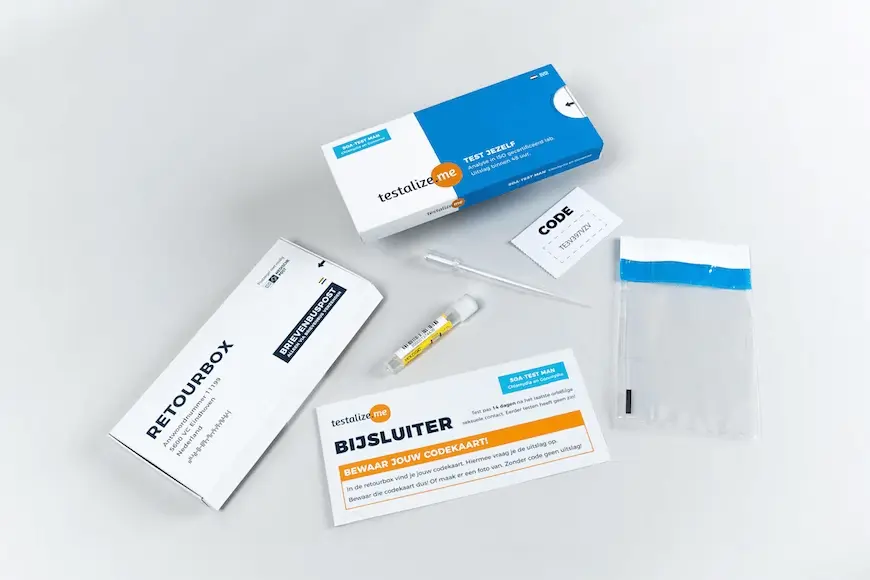STIs You Can Get Without Having Vaginal Sex

Sexually transmitted infections are typically passed to another person through sexual activities like vaginal, anal, or oral sex. However, there are several types of STDs that can also be transferred through casual contact, like using the same razors or toothbrushes, sharing food, sharing used towels, etc.
This is particularly true for bloodborne infections like HIV and hepatitis B that can be transmitted through non-sexual contact via infected body fluids like blood. In fact, STIs can also be transmitted from a mother to a child during pregnancy or labor or when breastfeeding.
In the US, there are over 20 million cases of sexually transmitted infections every year. In this guide, we have listed various ways you can get STIs without overt sexual contact.
Kissing
Even platonic kissing on the mouth, like a mother to her baby, can transmit STIs. A few easily transmissible diseases can be transmitted through saliva, including mononucleosis. However, another very common disease that can be transmitted through kissing in herpes simplex, also known as the cold sore virus, which stays with you for life.
Non-penetrative Sex
Non-penetrative sex, like oral sex can also transmit disease if the vagina, penis, or anus involved are infected. If a person has genital herpes, which is also caused by the herpes simplex virus 2, it can easily be transmitted to their partner during oral sex.
Chlamydia is a bacterial infection that can also infect your throat during oral sex. Even if you decide to wear a condom, some diseases like herpes and human papillomavirus cannot be prevented completely by it.
In addition, trichomoniasis can be transmitted by hand to genital contact or if you use unwashed underwear or sex toys of your partner.
Contaminated Food
People can get hepatitis A virus from having food or drink contaminated by the virus. The major mode of transmission of the hepatitis A virus is the ingestion of fecal matter. If someone goes to the bathroom, does not wash their hands, or prepares food with dirty hands, you can get hepatitis A from eating that food which you can then transmit sexually to other people, as well.
Skin-to-Skin Contact
Skin-to-skin contact may appear very innocuous, but there are some easily transmissible diseases that can be transmitted through it. Examples are HPV and the herpes virus.
If you have a cold sore, accidental touch with your mouth can lead to transmission of the virus to another person. Sleeping without clothes on a bed with someone with herpes, even if no sexual contact is involved, can also transmit the disease, particularly if broken skin is involved.
The risk of contracting an infection depends on factors like the condition of the skin and how severe the infection is.

Sharing Infected Towel or Clothes
Dirty towels, bed linen, and clothes may be home for a multitude of infections. The protozoa Trichomonas vaginalis, which causes trichomoniasis, is often transmitted through the use of dirty towels since it loves damp fabrics. Pubic lice are creatures that can also hitch a hike to your genitals through bed linen or clothing.
Tanning Spas
One of the most unexpected places where you can get an STI is the tanning salon. Molluscum contagiosum is a genital infection that is transmitted by skin-to-skin contact or contaminated surface of the tanning bed to other clients. This is a kind of pox virus that can result in small bumps and lesions on the surface of your skin.
Blood Transfusion
Using infected needles or razors can pretty much guarantee the transmission of a number of STIs. Sharing razors, needles, or any other equipment that breaks the skin is a possible way to get an STI like HIV, or hepatitis A, B, and C.
If one user is STI-positive, using their razor involves the risk of breaking the skin and mixing blood, which can lead to the transmission of disease. Even more high-risk behavior is the use of shared needles.
Using Telehealth for STIs
Since the COVID-19 pandemic, telehealth services have become an excellent option for replacing in-person care. Telehealth services can reduce the cost associated with visiting a doctor or reduce travel time.
An online doctor can be an excellent way to perform a follow-up on diagnosis and treatment. This is doubly true if these services are used in conjunction with lab testing, where patients provide a sample at a convenient time and follow up with their medical professionals using telehealth services.
Telehealth for STIs can also be an effective option for partner notification and STI treatment. Partner notification can be used to reach out to sexual partners of people who have been diagnosed with an STI and encourage them to treat the disease.
Generally, telehealth for STIs is a better option for ongoing health treatment and prevention, as well as an excellent way to educate patients on pre-exposure prophylaxis for preventing STIs like HIV.
For many people, consulting a virtual doctor may be less intimidating than an in-person appointment or talking about risky sexual behavior with their regular physician.
In addition, telehealth services for STI diagnosis and treatment allow patients to engage with healthcare experts who offer access to racial, gender, and sexual minorities that are stigmatized or do not have access locally.
Schedule an Appointment With Us Today
Speak to our doctor online and schedule a consultation with us today to educate yourself and get support for STI diseases. We offer very affordable healthcare for people with temporary residency status and no access to private or government health insurance.
Contact us today!